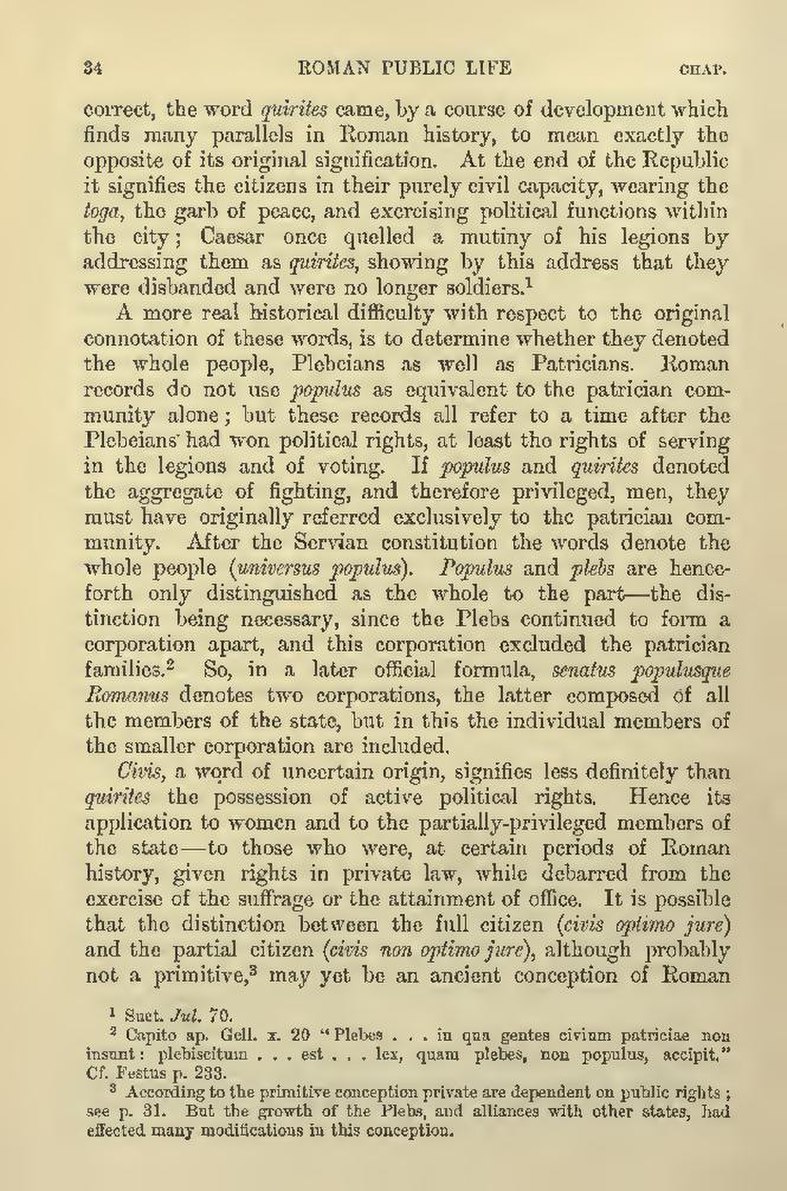correct, the word quirites came, by a course of development which finds many parallels in Roman history, to mean exactly the opposite of its original signification. At the end of the Republic it signifies the citizens in their purely civil capacity, wearing the toga, the garb of peace, and exercising political functions within the city; Caesar once quelled a mutiny of his legions by addressing them as quirites, showing by this address that they were disbanded and were no longer soldiers.[1]
A more real historical difficulty with respect to the original connotation of these words, is to determine whether they denoted the whole people, Plebeians as well as Patricians. Roman records do not use populus as equivalent to the patrician community alone; but these records all refer to a time after the Plebeians had won political rights, at least the rights of serving in the legions and of voting. If populus and quirites denoted the aggregate of fighting, and therefore privileged, men, they must have originally referred exclusively to the patrician community. After the Servian constitution the words denote the whole people (universus populus). Populus and plebs are henceforth only distinguished as the whole to the part—the distinction being necessary, since the Plebs continued to form a corporation apart, and this corporation excluded the patrician families.[2] So, in a later official formula, senatus populusque Romanus denotes two corporations, the latter composed of all the members of the state, but in this the individual members of the smaller corporation are included.
Civis, a word of uncertain origin, signifies less definitely than quirites the possession of active political rights. Hence its application to women and to the partially-privileged members of the state—to those who were, at certain periods of Roman history, given rights in private law, while debarred from the exercise of the suffrage or the attainment of office. It is possible that the distinction between the full citizen (civis optimo jure) and the partial citizen (civis non optimo jure), although probably not a primitive,[3] may yet be an ancient conception of Roman
- ↑ Suet. Jul. 70.
- ↑ Capito ap. Gell. i. 20 "Plebes . . . in qua gentes civium patriciae non insunt: plebiscitum . . . est . . . lex, quam plebes, non populus, accipit." Cf. Festus p. 233.
- ↑ According to the primitive conception private are dependent on public rights; see p. 31. But the growth of the Plebs, and alliances with other states, had effected many modifications in this conception.
